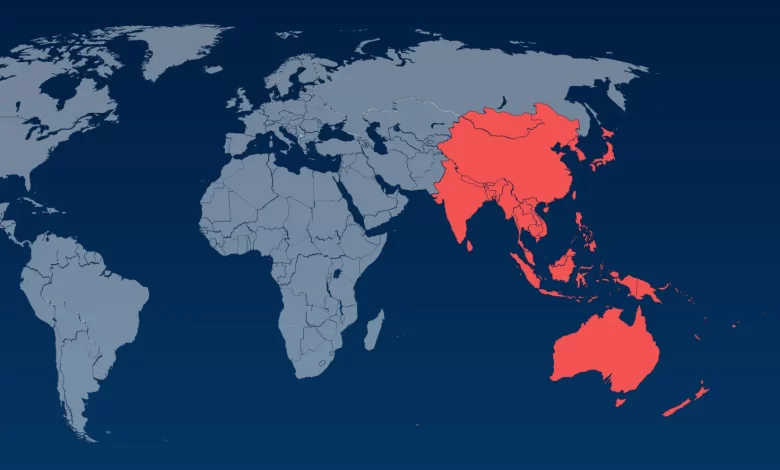AI Adoption Accelerates in APAC, But Consumers Struggle with Trust, Security, and Job Displacement Concerns
F5 and Twimbit’s latest study finds APAC consumers torn between AI’s potential and its pitfalls, revealing deep-rooted concerns over privacy, job security, and trust despite rising adoption.

Consumers across Asia Pacific (APAC) are facing an AI paradox: where the technology is embraced for productivity and efficiency, but fears around privacy risks, fraud, and employment impact hinder widespread trust. This was revealed in a new study by F5 (NASDAQ: FFIV), which explored the perceptions and attitudes APAC consumers have about AI.
Titled The 2025 AI Paradox: Understanding Consumer Perceptions in APAC, the research identified five key paradoxes influencing consumer trust in AI across nine APAC countries:the research identified five key paradoxes influencing consumer trust in AI across nine APAC countries:
- Empowerment Control: Consumers are excited about AI’s potential but demand transparency and governance to feel in control of their data and experiences.
- Tech Savviness Skepticism: Despite high levels of tech adoption, consumers remain skeptical about AI’s reliability and ethical implications.
- Efficiency Job Security: While AI promises increased efficiency, anxieties about job displacement are prevalent.
- Innovation Environmental Concerns: Consumers recognize AI’s innovative potential but are concerned about its environmental impact.
- Progress Responsibility: Consumers expect organizations to adopt AI responsibly, prioritizing fairness, security, and accountability.
“This research highlights a clear gap in trust when it comes to AI adoption in APAC. Consumers recognize AI’s benefits but remain cautious about security risks, ethical use, and its long-term impact on jobs and society. Organizations must proactively address these concerns by embedding transparency, governance, and security into every AI-driven experience. Without trust, AI adoption will stall, limiting its potential to drive innovation and efficiency,” said Mohan Veloo, CTO for APCJ at F5.
The study also revealed a disconnect between personal and professional AI experiences. While many individuals experience productivity gains from AI in their personal lives, these benefits are not being fully realized in the workplace. This suggests a need for organizations to focus on better integrating AI into workflows and providing employees with the training and resources they need to use AI effectively in their jobs.
“For AI to deliver real business value, organizations must ensure it is seamlessly integrated into their digital infrastructure while maintaining security and performance at scale. At F5, we help businesses deploy AI-powered applications securely, protect against AI-driven threats like deepfake fraud, and ensure AI solutions run reliably across multi-cloud environments. By addressing these security and scalability challenges, we empower enterprises to fully harness AI’s potential without compromising trust,” added Veloo.
Key findings from the report include:
- Strong AI familiarity across Asia: AI awareness is high across all markets, with familiarity exceeding 89% and surpassing 90% in most China leads at 98%, driven by aggressive adoption strategies and deep technological integration.
- Enterprises are not yet unlocking AI’s full potential in the workplace: While 73% of consumers report increased personal productivity with AI, the professional landscape shows much lower gains, with 52% reporting no noticeable change in workplace efficiency. However, the report revealed that AI delivers the greatest productivity gains with consistent use—46.2% of professionals who use AI daily report significant improvements, highlighting the power of continuous interaction. Organizations must bridge this gap through better AI integration, training, and workflow design.
- Rising trust concerns amid security risks: APAC has become a hotspot for fraud, with fraud rates having spiked significantly in Singapore (+207%), Thailand (+206%), and Indonesia (+201%) in 2024. In particular, AI-driven fraud is weakening consumer trust across the region; APAC saw a 194% increase in deepfake fraud and a 121% increase in identity fraud in As AI adoption grows, organizations must navigate the challenge of implementing robust security measures to build consumer trust while scaling AI solutions responsibly.
- Job displacement concerns hinder AI acceptance, but vary across APAC: In APAC, concerns about losing one’s job to automation are hindering consumers’ acceptance of AI in the However, concerns about AI-driven job losses differ markedly across the region. India and Singapore show the highest levels of concern, with 97% of consumers in both markets being slightly to very concerned about AI displacing their jobs. This is in contrast with Japan, where attitudes are much more relaxed—only 57% of Japanese consumers are slightly concerned, and 30% are not concerned at all.
- AI excels in speed, but trust still needs the human touch: APAC consumers recognize the efficiency gains that AI brings, with nearly half of consumers preferring AI for efficiency-driven tasks like customer support (47.9%) and personal shopping (45.6%). APAC consumers also have confidence in AI-powered insights, turning to AI for data-driven decisions in healthcare (40.1%) and financial advice (39.2%). However, AI falls short when it comes to emotional and sensory experiences; APAC consumers still prefer human interaction in food preparation (32.2%) and emotional support (26.6%), where empathy and personal touch matter.
- AI’s environmental footprint raises sustainability concerns: AI’s rapid surge brings a pressing challenge—the need to balance innovation with AI’s growing energy demands. Growing AI adoption is projected to cause APAC’s data center capacity to more than double by As such, majority of APAC consumers (53.8%) believe that while AI’s advantages are undeniable, efforts must be made to reduce its resource consumption. APAC organizations need to ensure that AI evolves responsibly, highlighting the region’s growing need for energy-efficient AI models, sustainable computing infrastructure, and greener data centers.
“This research makes it clear that consumers want the best of both worlds. They embrace AI for its efficiency and speed in transactional interactions, but still value human touch for emotional connections and complex decisions,” said Manoj Menon, Founder and CEO at Twimbit. “Organizations that succeed in the AI era will be those that strategically blend AI capabilities with human expertise—creating experiences that are both efficient and empathetic. By addressing security concerns, building transparent AI systems, and finding the right balance between automation and human connection, businesses can build the trust necessary to fully realize AI’s transformative potential across APAC.”
Twimbit conducted research on behalf of F5 in 2025 to evaluate consumer perceptions and attitudes about AI in APAC. 900 respondents were surveyed across nine key markets: Australia, China, India, Indonesia, Japan, Korea, New Zealand, Singapore, and Taiwan.
To learn more about the findings, please download the full report here.




